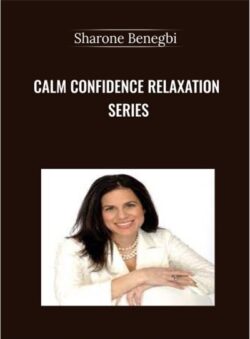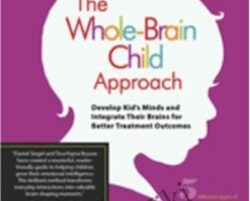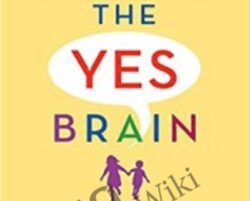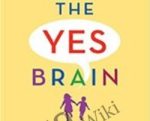When facing challenges, unpleasant tasks, and contentious issues, children often act out or shut down, responding with reactivity instead of receptivity. This is what New York Times bestselling authors Daniel J. Siegel and Tina Payne Bryson call a No Brain response.But our kids can be taught to approach life with openness and curiosity. Parents can foster their children’s ability to say yes to the world and welcome all that life has to offer, even during difficult times. This is what it means to cultivate a Yes Brain.This engaging video covers the key topics in the authors’ latest book, The Yes Brain: How to Cultivate Courage, Curiosity, and Resilience in Your Child, including:The four fundamentals of the Yes Brain—balance, resilience, insight, and empathy—and how to strengthen themThe key to knowing when kids need a gentle push out of a comfort zone vs. needing the “cushion” of safety and familiarityStrategies for navigating away from negative behavioral and emotional states (aggression and withdrawal) and expanding your child’s capacity for positivityIdentifies how to apply interpersonal neurobiology to parenting by making it accessible to parents and counselors in order to improve parent/child relationships.Compiles the various disciplines of science and weaves them into one framework in order to determine which concepts are useful for helping children develop.Provides a comprehensive understanding of the Yes Brain approach with regards to children and adolescent development by articulating the differences between mind, brain, and relationship and identifying how to integrate these concepts. Explains how what is done in relationships with children impacts how the architecture of the brain is built and identifies how we can help children develop brains that are integrated so that children can thrive in home and social settings.IntroductionIntroduction to Dan Siegel & Tina Payne BrysonThe Yes Brain ApproachMind, Brain, Relationship ConnectionIntegrationYes Brain vs. No BrainNeurological StateApproach to LifeSubjective Experience ExerciseAttention ActivationReactive No Brain State vs. Receptive Yes Brain State Promoting a Yes Brain State: 4 Fundamentals of the Yes BrainBalanceRepairFixed vs. Growth MindsetThe Four F’s of the Reactive StateSelf-RegulationThe Green, Red, & Blue ZonesChasing the WhyBalance StrategiesSleepHealthy Mind PlatterTime in, Play Time, Connecting Time, Down Time, Active Time, Focus Time, Sleep TimeResilienceExpanding the Width of the Green ZonePracticing Dealing with AdversityPush-in & CushionResilience StrategiesThe Four S’sSafe, Seen, Soothe, SecureInsightSelf-knowing Awareness & PresenceSuper Power MetaphorInsight StrategiesReframingAvoiding the Red Volcano EruptionEmpathyUnderstanding the Insula’s Role in Empathic ResonationTypes of EmpathyEmpathy By Parental ExampleConclusionIntegration & ConnectivityWhat is Success?Redefining the “Self”Question & Answer PeriodTag: The Yes Brain – Daniel J. Siegel & Tina Payne Bryson Review. The Yes Brain – Daniel J. Siegel & Tina Payne Bryson download. The Yes Brain – Daniel J. Siegel & Tina Payne Bryson discount.
 Calm Confidence Relaxation Series – Sharone Benegbi
₹7,636.00
Calm Confidence Relaxation Series – Sharone Benegbi
₹7,636.00
 The Whole-Brain Child Approach: Develop Kids’ Minds and Integrate Their Brains for Better Outcomes
₹12,450.00
The Whole-Brain Child Approach: Develop Kids’ Minds and Integrate Their Brains for Better Outcomes
₹12,450.00
The Yes Brain – Daniel J. Siegel & Tina Payne Bryson
₹9,130.00





